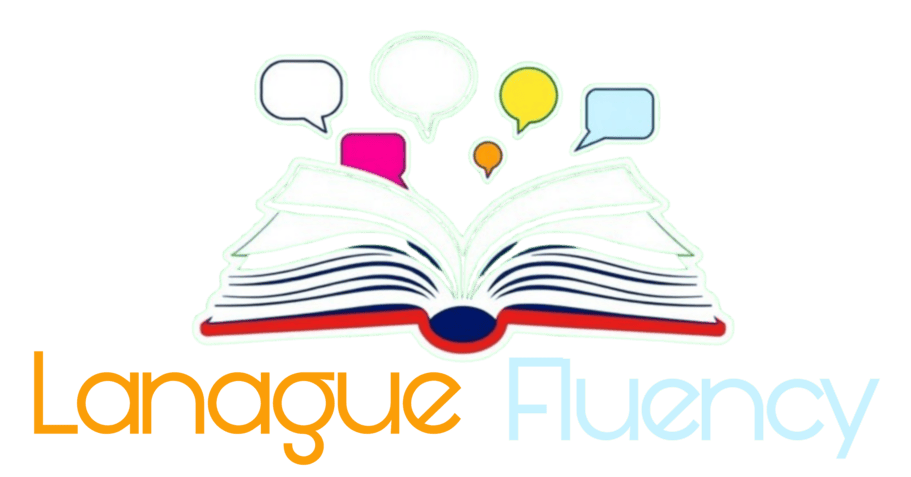Strategies for Setting Realistic Goals

Setting realistic goals is essential for success in any endeavor, including language learning. When establishing language learning goals, it’s important to be specific and measurable. Instead of a vague goal like “I want to be fluent in Spanish,” consider a more concrete goal such as “I want to be able to have a basic conversation in Spanish within three months.” This way, progress can be easily tracked and adjustments can be made as needed.
Additionally, setting achievable goals is crucial for maintaining motivation. It’s better to start with smaller, attainable goals that can be built upon rather than setting unrealistic expectations that may lead to frustration and burnout. By breaking down the language learning process into smaller, manageable steps, learners are more likely to stay motivated and make steady progress towards fluency.
The Power of Immersion
One of the most effective ways to accelerate language learning is through immersion. Immersing oneself in the target language and culture allows for a more authentic and holistic understanding of the language. This can include surrounding oneself with native speakers, consuming media in the target language, and practicing language skills in real-life situations.
Immersive experiences go beyond traditional language learning methods by providing a real-world context for applying language skills. By engaging with the language in various settings, learners can improve their listening, speaking, reading, and writing abilities while gaining insights into the nuances of the language. Immersion also helps learners develop cultural competency and a deeper appreciation for the language they are studying.
Utilizing Language Learning Apps
Language learning apps have become increasingly popular for learners of all levels. These apps offer a convenient way to practice vocabulary, grammar, and pronunciation on-the-go. With a wide range of apps available, learners can choose one that aligns with their goals and preferred learning style. Features such as interactive exercises, quizzes, and flashcards make learning engaging and effective.
Additionally, language learning apps often incorporate gamified elements that make the learning process fun and interactive. Points, badges, and leaderboards motivate users to stay consistent with their practice and track their progress over time. Some apps also offer personalized recommendations and adaptive learning techniques to tailor the learning experience to each individual’s needs and abilities.
• Language learning apps offer a convenient way to practice vocabulary, grammar, and pronunciation on-the-go
• Learners can choose an app that aligns with their goals and preferred learning style
• Interactive exercises, quizzes, and flashcards make learning engaging and effective
• Gamified elements such as points, badges, and leaderboards motivate users to stay consistent with their practice
• Some apps offer personalized recommendations and adaptive learning techniques for individual needs
Incorporating Language Study into Daily Routine
To ensure consistent progress in language learning, integrating study sessions into your daily routine is paramount. Setting aside dedicated time each day, whether it’s in the morning before work or in the evening before bed, can help you stay on track with your language goals. By making language practice a habitual part of your day, you will gradually build fluency and proficiency in the target language.
Incorporating language study into your daily routine doesn’t have to be time-consuming or overwhelming. Even short, focused study sessions of 15-30 minutes can be highly effective in improving your language skills over time. Consider using downtime during your commute, lunch break, or even waiting in line to review vocabulary, practice grammar exercises, or listen to language learning podcasts. Consistency is key, so find a routine that works for you and stick to it diligently to see meaningful progress in your language learning journey.
Seeking Language Exchange Partners
When it comes to improving your language skills, seeking language exchange partners can be a valuable and enriching experience. Connecting with someone who is a native speaker of the language you are trying to learn can provide you with real-life conversations and cultural insights that textbooks cannot offer.
By engaging in language exchange partnerships, you not only get the chance to practice speaking and listening in a natural setting, but you also have the opportunity to teach your partner your native language. This reciprocal exchange of knowledge and skills can create a supportive learning environment where both parties can benefit and progress in their language acquisition journey.
Taking Advantage of Online Resources

When it comes to learning a new language, the vast array of online resources available can be a valuable asset. Online platforms provide access to a wealth of educational materials, interactive exercises, language courses, and tools that cater to different learning styles and preferences. These resources offer convenience and flexibility, allowing language learners to practice and improve their skills at their own pace and convenience.
Moreover, online resources often offer the opportunity for language learners to engage with native speakers or instructors through virtual language exchange programs, online tutoring sessions, and language learning communities. This interactive aspect can greatly enhance the learning experience by providing real-world practice, cultural insights, and immediate feedback. By taking advantage of these online resources, language learners can supplement their studies, gain exposure to authentic language usage, and make significant strides in their language learning journey.
Engaging in Language Meetups or Groups
Engaging in language meetups or groups can provide a valuable opportunity to practice speaking and listening in a supportive environment. By interacting with others who are also learning the language, you can boost your confidence and overcome any fear of making mistakes. These meetups often offer a chance to engage in real-life conversations, which can help you improve your communication skills in a practical and meaningful way.
Additionally, being part of a language meetup or group allows you to benefit from the diverse perspectives and experiences of fellow language learners. You can exchange tips, resources, and strategies for language learning, which can enrich your own learning journey. Building connections with like-minded individuals who share a common goal of language proficiency can create a sense of camaraderie and motivation to stay dedicated to your language learning efforts.
Implementing Spaced Repetition Techniques
Spaced repetition techniques are a powerful tool in language learning that leverage the spacing effect to enhance memory retention. This method involves reviewing information at increasing intervals over time, allowing learners to reinforce and solidify their language skills effectively. By strategically spacing out practice sessions, individuals can optimize their learning process and commit new vocabulary, grammar rules, and phrases to long-term memory more efficiently. In essence, spaced repetition techniques capitalize on the brain’s ability to recall information better when it is revisited at specific intervals, making it a valuable strategy for language learners seeking to memorize and internalize new linguistic content.
Consistency is key when implementing spaced repetition techniques into your language learning routine. By incorporating short study sessions at regular intervals, you can maximize the effectiveness of this method and build a strong foundation of language skills over time. Whether you are using flashcards, online apps, or specialized language learning platforms, staying committed to consistently reviewing and practicing with spaced repetition will ensure that you retain and recall information more effectively. Additionally, adjusting the intervals based on your individual learning needs and progress can further tailor this technique to suit your language acquisition goals.
Utilizing Mnemonics and Memory Techniques
Mnemonics and memory techniques can be powerful allies in your language learning journey. By creating vivid and imaginative associations between new words and concepts and familiar ones, mnemonics can help cement these in your memory. For example, you could associate the Spanish word “gato” (cat) with a mental image of a cat wearing a sombrero, making it easier to recall the word when needed. Memory techniques like this can make vocabulary retention more engaging and effective.
Additionally, implementing memory palace techniques can further enhance your memorization capabilities. This method involves mentally associating specific words or phrases with different locations in a familiar place, such as your home. By mentally walking through these locations and recalling the associated words, you can strengthen your memory recall for language learning. This spatial mnemonic device can be a creative and fun way to solidify your grasp of new vocabulary and grammar rules.
Practicing Active Listening Skills
Active listening is a crucial skill when learning a new language. By listening carefully to native speakers, language learners can improve their understanding of pronunciation, intonation, and natural speech patterns. This active engagement with spoken language helps learners develop their ear for the language, making it easier to communicate effectively in real-life situations. Additionally, by actively listening to a variety of speakers, learners can expose themselves to different accents and dialects, further enhancing their overall language comprehension.
One effective way to practice active listening is to regularly engage with authentic language materials such as podcasts, radio programs, or audiobooks. This allows learners to immerse themselves in the language and tune their ears to the nuances of native speakers. By listening to a wide range of content, learners can also expand their vocabulary and improve their listening comprehension skills. Moreover, actively listening to spoken language helps learners pick up on common phrases, idiomatic expressions, and colloquialisms that are commonly used in everyday conversations.
Using Language Learning Podcasts or Videos

When it comes to language learning, podcasts and videos can be invaluable resources for improving your skills in an engaging and interactive way. Podcasts offer the flexibility to listen and learn on-the-go, whether you’re commuting to work or doing household chores. By immersing yourself in conversations, interviews, and language lessons, you can enhance your listening comprehension and pick up on natural speech patterns and expressions. Choose podcasts that align with your proficiency level and interests to make the learning experience more enjoyable and effective.
On the other hand, videos provide a visual element to language learning, making it easier to understand context, body language, and facial expressions. Platforms like YouTube offer a plethora of language learning channels that cater to different learning styles and goals. You can watch vlogs, tutorials, or authentic content in your target language to expose yourself to diverse accents and cultural nuances. Additionally, watching language learning videos can help reinforce vocabulary, grammar concepts, and pronunciation through visual cues and examples.
Reading Books or Articles in the Target Language
Incorporating reading into your language learning routine can be a valuable way to improve your skills. By immersing yourself in books or articles written in the target language, you can expand your vocabulary, enhance your comprehension abilities, and gain exposure to different writing styles. Engaging with various topics through reading can also help you become more familiar with cultural nuances and idiomatic expressions within the language.
Furthermore, reading regularly can reinforce grammar rules and sentence structures, allowing you to internalize the language more effectively. Whether you choose to delve into novels, magazines, news articles, or online blogs in your target language, each reading session presents an opportunity for you to practice your language skills in a meaningful context. As you explore different genres and authors, you can discover new words and phrases, which you can then incorporate into your spoken and written communication.
Watching Movies or TV Shows in the Target Language
When it comes to language learning, watching movies or TV shows in the target language can be an enjoyable and effective way to improve your skills. Immersing yourself in authentic content allows you to hear how native speakers use the language in real-life situations. By exposing yourself to different accents, expressions, and colloquialisms, you can enhance your listening comprehension and expand your vocabulary.
Additionally, watching movies or TV shows provides context to the language, helping you understand how words and phrases are used in various contexts. Subtitles can also be beneficial, as they can assist you in connecting spoken words to their written form. Furthermore, observing body language, gestures, and facial expressions can aid in better understanding the nuances of communication in the target language.
Practicing Writing Skills through Journaling or Blogging
Writing regularly in a journal or blog can be a powerful way to improve your language skills. By expressing your thoughts, feelings, and experiences in writing, you can practice constructing sentences, using vocabulary, and honing your grammar. Journaling allows you to reflect on your day-to-day life, while blogging gives you the opportunity to share your thoughts with others and receive feedback that can help you grow as a writer. Regular practice through writing can also help you become more comfortable with expressing yourself in the target language, ultimately leading to increased fluency and confidence in your language abilities.
Additionally, incorporating journaling or blogging into your language learning routine can provide you with a tangible record of your progress over time. Looking back on your early entries and comparing them to more recent ones can be a great way to see how far you’ve come in your language journey. It can also be a motivating factor, as you witness firsthand the improvements in your writing skills and language proficiency. Whether you choose to keep your writing private in a journal or share it with an online audience through a blog, the act of regularly putting your thoughts into words can be a valuable tool in your language learning arsenal.
Seeking Feedback from Native Speakers
Engaging with native speakers is a valuable aspect of language learning, as it provides an opportunity to receive authentic feedback on your language skills. By interacting with those who have a natural grasp of the language, you can gain insight into pronunciation, grammar usage, and cultural nuances that may not be readily apparent in study materials. Seeking feedback from native speakers allows you to refine your communication abilities and improve your overall language proficiency through personalized guidance and correction.
Native speakers can offer unique perspectives and corrections that help you progress in your language journey. Whether it’s receiving tips on colloquial expressions, refining your accent, or learning idiomatic phrases, their feedback can enhance your language competency in ways that self-study alone may not achieve. By actively seeking feedback from native speakers, you demonstrate a willingness to grow and adapt in your language learning efforts, fostering a deeper understanding of the language and building confidence in your communication skills.
Utilizing Flashcards for Vocabulary Building

Flashcards are a powerful tool in expanding vocabulary when learning a new language. They provide a convenient and organized way to memorize new words and their meanings. By creating flashcards with the target language on one side and the translation on the other, learners can easily test themselves and reinforce their vocabulary retention.
Repetition is key when using flashcards for vocabulary building. Reviewing the flashcards regularly helps to reinforce the new words in memory. Additionally, incorporating images or example sentences on the flashcards can provide context and aid in understanding the usage of the words. Flashcards can be used anytime and anywhere, making them a versatile and effective resource for language learners striving to enhance their vocabulary.
Incorporating Language Learning Games
One effective way to make language learning more enjoyable and interactive is by incorporating language learning games into your study routine. Games not only provide a fun way to practice and reinforce language skills, but they also help improve retention and motivation. Whether you prefer board games, card games, online games, or mobile apps, there are various options available to cater to different learning styles and preferences.
Language learning games can range from simple vocabulary matching games to more complex grammar or conversation-based games. These interactive activities not only test your knowledge but also push you to think quickly and make connections between words and phrases. By incorporating games into your language learning routine, you can make the process more engaging and dynamic, leading to a more immersive and effective learning experience.
Joining Language Challenges or Contests
Participating in language challenges or contests can provide a fun and motivating way to boost your language learning journey. These events often set specific goals and deadlines, pushing you to practice consistently and track your progress over a set period. Whether it’s a competition to improve vocabulary, pronunciation, or fluency, joining these challenges can help you stay focused and engaged in your language studies.
Moreover, language challenges or contests can also offer a sense of community and camaraderie with fellow language learners. Sharing your achievements, struggles, and tips with others who are on a similar path can create a supportive environment that keeps you accountable and motivated. Connecting with like-minded individuals through these challenges allows you to celebrate successes together and learn from each other’s experiences, making the language learning process more enriching and enjoyable.
Attending Language Classes or Workshops
Attending language classes or workshops can be a valuable addition to your language learning journey. These structured environments provide you with the opportunity to engage with expert instructors who can guide you through the intricacies of grammar, vocabulary, and pronunciation. By immersing yourself in a classroom setting, you can receive immediate feedback on your language skills and clarify any doubts you may have in real time.
Furthermore, language classes or workshops offer a collaborative learning experience where you can interact with fellow language enthusiasts. Sharing your struggles and successes with like-minded individuals can boost your motivation and create a supportive community to practice speaking and listening skills. Additionally, attending regular classes or workshops can help you establish a consistent study routine and hold yourself accountable for your language learning progress.
Staying Consistent and Persistent in Language Practice
Remaining dedicated to consistent and persistent language practice is crucial in achieving fluency. By setting a routine and sticking to it, learners can gradually build their language skills over time. Consistency helps to reinforce learning and prevent forgetting, ensuring that progress is made steadily. It’s essential to prioritize language practice in daily schedules and view it as a non-negotiable part of the day.
Persistence is the key to overcoming challenges and setbacks in language learning. Learners should approach difficulties as opportunities to grow and improve, rather than reasons to give up. By staying persistent, individuals can push through plateaus and continue making strides towards their language goals. Embracing a positive mindset and celebrating small victories along the way can also help maintain motivation and momentum.



